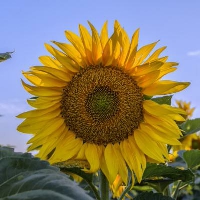The education department did not say whether China University of Petroleum (Beijing) is a one or two university. The number of China University of Petroleum (Beijing) is just a folk story. Whether it is a one or two university depends on the enrollment batch of the province (city) where it is located.
China University of Petroleum (Beijing)
China University of Petroleum, Beijing), referred to as CUP, is directly under the Ministry of Education of the People's Republic of China. It is among the first batch of "211 Project", the first batch of "world-class discipline construction universities", member universities of Beijing High tech University Alliance and the World Energy University Alliance, and has been selected into the 985 Project Advantage Discipline Innovation Platform, the "111 Plan", the excellent engineer education and training plan The National Construction High level University Public Postgraduate Program, the New Engineering Research and Practice Program, and the Chinese Government Scholarship receiving institutions for international students in China have graduate schools. It is a national key university with distinctive petroleum characteristics, engineering oriented, and multidisciplinary coordinated development, and is known as the "cradle of petroleum talents".
China University of Petroleum (Beijing) Ace Major
National characteristic majors: resource exploration engineering, petroleum engineering, chemical engineering and process, exploration technology and engineering (geophysical exploration), exploration technology and engineering (logging), mechanical design and manufacturing and its automation, automation, oil and gas storage and transportation engineering, and applied chemistry
Beijing Key Construction Discipline
First level discipline National key discipline: oil and gas well engineering, oil and gas field development engineering, oil and gas storage and transportation engineering
Secondary discipline National key discipline: mineral prospecting and exploration, chemical process
Key disciplines in Beijing: geological resources and geological engineering, chemical engineering and technology, applied chemistry, industrial catalysis, management science and engineering, oil and gas safety engineering, low-carbon energy engineering, mechanical design and theory, materials science

